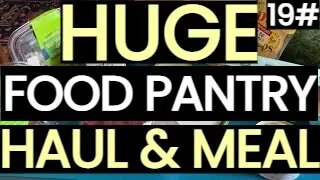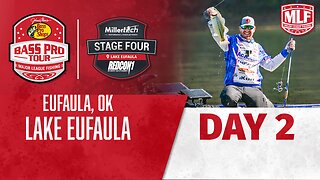Prepping - Prepping For Winter - Prepping tips to save money - Prepper Pantry
Prepping, also known as preparedness, is a way of life that centers on being ready for a wide range of unforeseen circumstances. It involves accumulating knowledge, resources, and skills to ensure you and your loved ones can adapt and thrive when faced with unexpected challenges. Prepping goes beyond doomsday scenarios and instead focuses on practical readiness. In this article, we'll delve into the world of prepping, exploring its core principles, essential preparations, and the significance of adopting a preparedness mindset.
Prepping, short for preparedness, is a mindset and lifestyle dedicated to readiness for unforeseen events. It's not just about stockpiling supplies for apocalyptic scenarios; it's a practical approach to life that ensures you're equipped with the knowledge, resources, and skills to thrive when the unexpected occurs.
Prepping for a cold winter!
Prepping is the practice of actively preparing for various crises and emergencies. These events can range from natural disasters like hurricanes, earthquakes, and wildfires to personal crises such as job loss or illness. Preppers seek to safeguard their well-being, security, and self-sufficiency by acquiring the necessary knowledge, supplies, and skills.
Prepping is not about succumbing to fear but rather acknowledging the unpredictability of life. Here are a few reasons why prepping is essential:
Natural Disasters: Earthquakes, floods, hurricanes, and wildfires are unpredictable and can lead to severe disruptions, from power outages to infrastructure damage. Being prepared can make a significant difference in your safety and comfort during these events.
Economic Downturns: Financial crises can lead to job loss, economic instability, and reduced access to resources. Prepping financially by having an emergency fund and reducing debt can provide a safety net during tough times.
Personal Emergencies: Health issues, accidents, or unexpected life changes can disrupt your daily routine. Prepping with first aid skills and a support network can be invaluable during personal crises.
Prepping is guided by several core principles that define its purpose and approach:
Self-Reliance: Prepping emphasizes the importance of being self-reliant. It means you should be able to provide for yourself and your family's basic needs, such as food, water, shelter, and security, without relying solely on external assistance.
Risk Mitigation: Preppers seek to identify potential risks and take steps to minimize their impact. This might include preparing for specific natural disasters or having a financial safety net for economic downturns.
Resourcefulness: Prepping encourages resourcefulness and adaptability. It's not just about stockpiling supplies; it's also about learning how to make the most of what's available.
Community and Cooperation: Preppers often form or join communities to share knowledge, resources, and support. In times of crisis, a strong community can provide essential assistance and safety.
Prepping involves a variety of preparations, but some essentials include:
Emergency Kits: Building a well-equipped emergency kit is one of the foundational aspects of prepping. It should include items such as food, water, first aid supplies, flashlights, blankets, and important documents.
Water and Food Storage: Having a supply of clean drinking water and non-perishable food that can sustain your family for an extended period is a cornerstone of prepping.
First Aid and Medical Skills: Basic first aid skills and a comprehensive first aid kit are crucial for dealing with injuries and medical emergencies.
Self-Defense Skills: While prepping for personal safety, learning self-defense can provide peace of mind in uncertain situations.
Outdoor Skills: Outdoor skills like navigation, fire-building, and foraging are valuable, especially if you need to shelter in place or evacuate to a wilderness area.
Financial Prepping: Preparing financially includes building an emergency fund, reducing debt, and diversifying investments to ensure financial stability in times of economic crisis.
Long-Term Sustainability: Achieving long-term sustainability involves gardening and agriculture, renewable energy sources, water harvesting, and possibly raising livestock for a consistent source of food.
Prepping is not just an individual pursuit; it extends to the community level as well. Many preppers recognize the importance of cooperation and community support. They often form prepping communities or neighborhood watch programs to enhance security and provide a network of shared resources and knowledge.
Prepping has a legal and ethical dimension. It's essential to abide by local, state, and federal laws regarding firearm ownership and usage if you choose to include them in your preparations. Bartering and trade during emergencies also have legal and ethical aspects that should be considered.
Prepping is a holistic approach to readiness that covers a wide array of life's challenges. It's about being proactive, resourceful, and self-reliant. While it's often associated with extreme scenarios, the fundamental principles of prepping can be applied to everyday life, ensuring you're prepared for both the expected and the unexpected. Whether it's a natural disaster, an economic downturn, or a personal emergency, prepping can provide peace of mind, safety, and resilience in the face of adversity.
-
 11:27
11:27
CARE FREE LIVING
5 months agoFood Pantry Haul & Food Bank Haul BLESSINGS! Frugal Living Vlog With Awesome Food Pantry Meals ENJOY
135 -
 LIVE
LIVE
Film Threat
20 hours agoTHE FALL GUY + GEORGE LUCAS STAR WARS IS BACK IN THEATERS | Film Threat Livecast
284 watching -
1:29:41
jeffahern
3 hours agoFriday Freakout with Jeff Ahern! (9am Pacific)
16.2K3 -
 LIVE
LIVE
Midnight's Edge
17 hours agoSony enters the Paramount Fray, while Amazon takes on He-man! | MEiTM #556
282 watching -
 1:18:25
1:18:25
Trumpet Daily
2 hours agoTrumpet Daily | May 3, 2024
4.22K6 -
 48:49
48:49
Tate Speech by Andrew Tate
3 hours agoEMERGENCY MEETING EPISODE 50 - COWARDICE
90.1K111 -
 1:04:01
1:04:01
Tactical Advisor
2 hours agoBudget Night Vision Unboxing - Vault Room Live Stream
9.13K2 -
 47:04
47:04
Rethinking the Dollar
3 hours agoWhat's Happening to US Jobs? April Figures Fall Short with Rising Unemployment! Friday Morning Check-In w/ Mike
17.7K7 -
 2:45:20
2:45:20
Matt Kohrs
11 hours agoCollege Chaos Persists, New Unemployment Report & Live Trading || The MK Show
30.8K5 -
 LIVE
LIVE
Major League Fishing
3 days agoBass Pro Tour LIVE - Stage Three - Day 2
211 watching